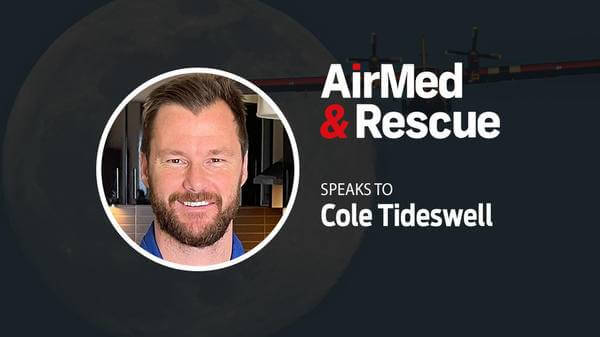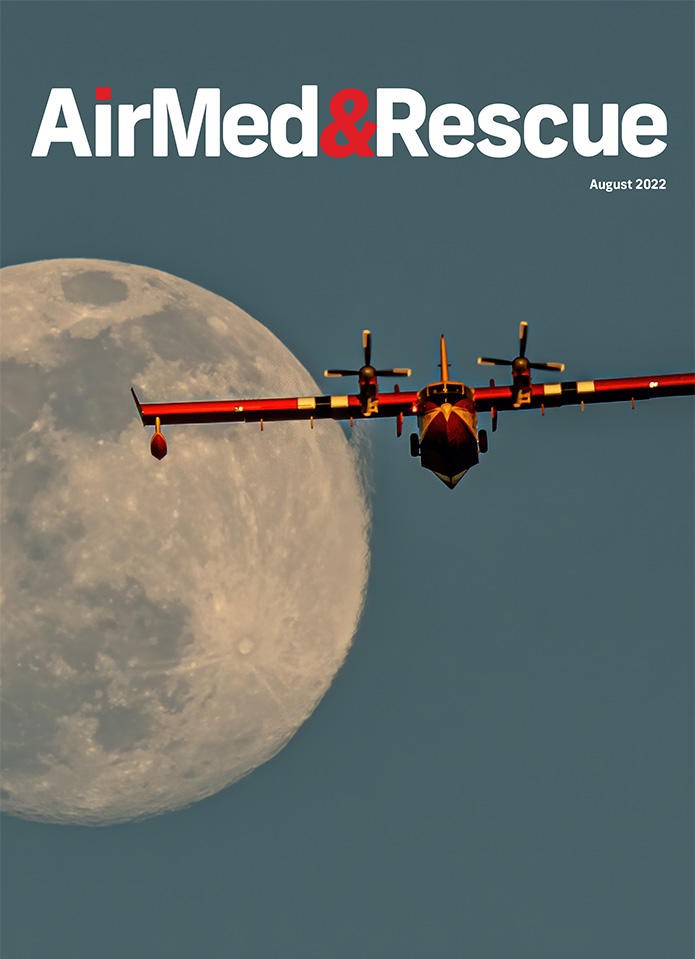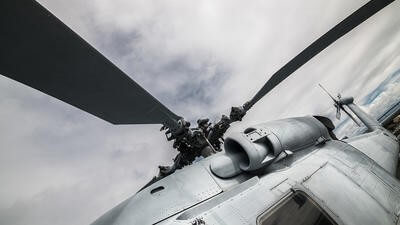Interview: Cole Tideswell

Kate McLaughlin spoke with Advanced Life Support and Flight Paramedic Cole Tideswell about hostile environment healthcare, and aeromedical assistance and evacuation solutions
AMI Expeditionary Healthcare is a novel healthcare support organization. AMI, providing tailored healthcare solutions to government agencies, the private sector, international aid organizations, and humanitarian concerns in remote and challenging environments, and currently operates in Afghanistan, Australia, Liberia, Sierra Leone, Libya, Somalia, South Sudan and the US. Services provided include Covid-19 response, refugee healthcare, primary and emergency care, aeromedical evacuation services, crisis response, medical service supply chain assistance, hospital development and management and training.
How did your career begin, and how has your role evolved over the last 15 years?
My career in the South African Emergency Services began in 2007 when I completed the basic emergency medical technician (EMT) program in the town I was living in; it was not long after that the ‘helping people’ bug got its hold on me. After a couple of months, I progressed to the next level, and not long after I found myself studying to become an Advanced Life Support Paramedic. This is where my Emergency Medical Services (EMS) career kicked off. As an Advanced Life Support (ALS) Paramedic, I got involved in professional skills development training, training EMT-Basic and Intermediate programs, presenting International Trauma Life Support, AHA programs including Basic Life Support, Advanced Cardiac Life Support, and Paediatric Advanced Life Support.
I started working in Aviation Medicine and the Intensive Care Unit (ICU) environment, assisting in fixed-wing, rotor-wing, and ICU road operations. This became my new normal shift pattern, and involved having to manage critically injured and ill patients ranging from premature newborns infants to complicated cardiac transfers with patients receiving extracorporeal membrane oxygenation (ECMO).
Over this time, I have been allowed to grow from an operational ALS Paramedic to an experienced remote site ALS Practitioner with more than eight years of ICU and aviation medicine experience, which now includes the journey into the management of projects, and start-up projects.
Can you tell us more about the diversity of your role, and the considerations needed for command management in a hostile environment?
As an ALS paramedic, having to think dynamically comes with the job description, however, that alone is not enough to ensure safety in a hostile situation. The most important component is having a clear understanding of situational awareness and always scanning your environment for changes that include bystander movements, vehicle movements, and voices that cannot be placed due to line of sight or areas that are unfamiliar.
When you add your ambulance crews into the situation, even more attention to detail is required to ensure the safety of yourself and the team that you are responsible for. Once the patient is receiving attention the tension is heightened even more to ensure the safety of all on the scene. It is incredibly easy to lose focus and concentration in these situations with cell phones, smartwatches, and radios taking the focus for a second, which is more than enough time for a situation to change for the worst.
Is preplanning based around dispatch information regarding primary callouts necessary, and how do you cope with misinformation?
Detailed and comprehensive information received about the callout is deeply beneficial to any crew member involved in the primary call, as it will provide the treating paramedic team the opportunity to gather the appropriate equipment required in
Detailed and comprehensive information received about the callout is deeply beneficial to any crew member involved in the primary call, as it will provide ... the opportunity to gather the appropriate equipment required
the instance of a pediatric patient, or a more complex ICU transfer and more ICU equipment may be needed, which includes more infusion pumps and syringe drivers to manage the patient’s medication administration requirements to ensure a smooth transition of care.
As an ALS Paramedic, adapting to a situation is required as the patients’ condition may change drastically during our time with the patient, and the equipment carried on duty provides the capability to manage the more general and regular cases, in which incorrect information will not negatively impact callout as they do tend to occur more often than we like to admit in modern EMS operations as patients have been known to dramatize situations to obtain a higher level of care, when it is not always needed. This contributes negatively to critical care resource management and careful adaption is therefore required. Further incorrect case details in the ICU setting may result in severe and potentially life-threatening delays due to poor information, as these details guide practitioners to equipment and resources required for more complex cases, and this equipment is not always available on the standard ambulances and rapid response vehicles.

Are there any special considerations required to minimize risk and complications when attending cases in general, and particularly in a hostile environment?
Attending a primary callout, all medical practitioners must remain vigilant on all cases and teams should try always to remain aware of their environment through a reduction of time on devices, as they may draw focus from their surroundings. In the modern world we spend so much time on our cell phones we become detached from what, and who, is in our immediate area, and this poses several risks when in a new and unfamiliar environment.
During a hostile environment call it remains critical we have the appropriate law enforcement available and present if possible, and remain in direct line of sight with our team as far as we are able, and ensure the use of technological devices is kept to a minimum to remain situationally aware but provide updates to the operations center (when it is safe to do so). We need to ensure we can communicate to teams if there are any changes in the environment.

How do you train and retain talent for this challenging role whilst maintaining employee wellbeing?
Regular training programs to retain critical skills are required, this will mitigate the risk of losing the core competencies of an ALS Practitioner. These skill training sessions may include mandatory airway stations to ensure advanced airway skill practice is maintained with the inclusion of difficult airway management in both adults and pediatric patients, advanced cardiac management including electrocardiogram (EKG) practice, infusion management cases and diagnoses training to ensure interpretation skills remain at the highest standard. These are done in teams to maintain accountability in skills retention.
Maintaining employee wellbeing has become a factor we, as healthcare practitioners, previously brushed aside and overlooked
In the present world, we must protect our mental health, as well as that of four teams, due to the environments and situations to which we are regularly exposed, and it is incredibly easy to find ourselves and team members with the real risk of developing depression or post-traumatic stress disorder. These mental health challenges may take years to overcome and professional help to avoid practitioners from developing substance abuse problems. Therefore, it is critical to have team members take part in team debriefings on cases, have one-on-one counseling sessions to work through challenging calls without the fear of judgment, and finally talk through cases with peers on ways to improve for the next critical case they may face, as this also adds to a form

August 2022
Issue
In our August issue of AirMed&Rescue we look at survival, sustainability, and performance; both in the air and on the ground.
Editorial Team
The AirMed&Rescue Editorial Team works on the website to ensure timely and relevant news is online every day. With extensive experience and in-depth knowledge of the air medical and air rescue industries, the team is ready to respond to breaking industry news and investigate topics of interest to our readers.


